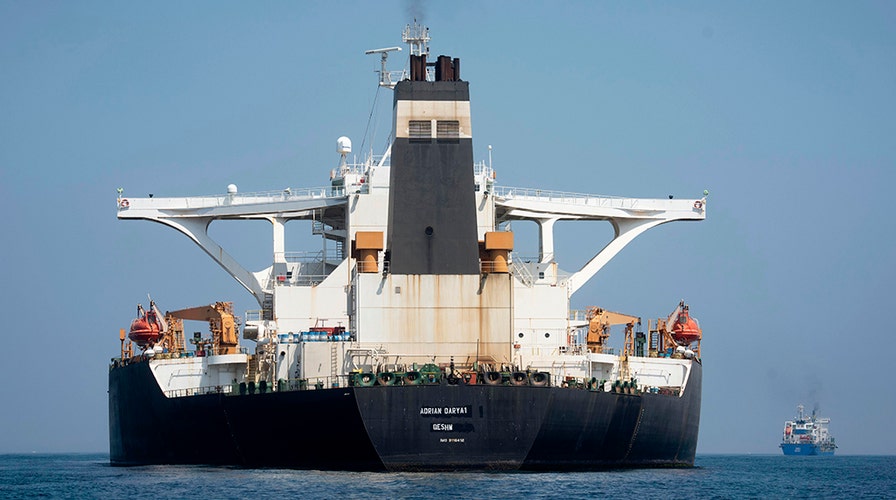Iranian-flagged oil tanker sought by US reportedly leased to Revolutionary Guard
The tanker is believed to be hauling $130 million in light crude oil; reaction and analysis from Fox News contributor Johnny Joey Jones, former Marine Corps bomb technician.
An Iranian oil tanker that's been pursued by the U.S. turned off its tracker on Monday just outside the coast of Lebanon and Syria.
The tanker — Adrian Darya 1 — carries roughly 2.1 million barrels of Iranian oil worth an estimated $130 million. It turned off its Automatic Identification System (AIS) tracking beacon around noon ET on Monday, according to MarineTraffic.com, a ship-tracking website.
TEHRAN WILL 'TAKE A STRONG STEP' AWAY FROM NUCLEAR DEAL IF EUROPE DOESN'T OFFER NEW TERMS, IRAN SAYS
Formerly known as the Grace 1, the vessel was heading north, roughly 45 nautical miles from Syria, when it disappeared — following a pattern of Iranian oil tankers turning off their AIS once they reach near Cyprus in the Mediterranean Sea in an effort to hide where they deliver their cargo amid U.S. sanctions targeting Iran’s energy industry.
Because Turkey has stopped taking Iranian crude oil and Syria historically has taken around 1 million barrels of crude oil a month from Iran, Ranjith Raja, a lead analyst at the data firm Refinitiv, said it was likely the ship would be offloading its cargo in Syria.

The Adrian Darya 1, pictured here in August in the British territory of Gibraltar, turned off its tracker on Monday off the coast of Syria and Lebanon. (AP Photo/Marcos Moreno)
Iranian officials haven’t identified who bought the Adrian Darya’s cargo, only that it has been sold.
The U.S., which has sought to seize the tanker, alleged in federal court that the ship is owned by Iran’s Revolutionary Guard — which was recently declared a terrorist organization by the U.S., giving the country greater power to seize its assets.
CLICK HERE TO GET THE FOX NEWS APP
U.S. officials since have warned countries not to aid the Adrian Darya 1, which has said it would be heading to Greece and Turkey before turning off its tracker Monday. Authorities in Gibraltar alleged the ship was bound for a refinery in Baniyas, Syria, when they seized it in early July. They ultimately let it go after holding it for weeks.
The Associated Press contributed to this report.








































